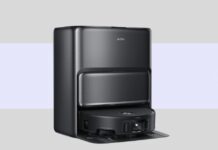Discover how strategic HVAC system choices can significantly impact your business’s operational costs and sustainability efforts. Learn from successful entrepreneurs who have leveraged modern heating and cooling solutions to create more efficient workspaces while reducing their carbon footprint and monthly expenses.
In today’s competitive business landscape, every operational decision can make or break your profit margins. While many entrepreneurs focus on marketing strategies and product development, the often-overlooked aspect of building infrastructure, particularly heating and cooling systems, can significantly impact both your bottom line and employee productivity. Let’s explore how making informed HVAC decisions can transform your business operations.
The Evolution of Commercial Climate Control
Modern businesses are increasingly recognizing the importance of efficient climate control solutions. When considering commercial HVAC systems, many business owners are turning to innovative solutions like geothermal systems, which, according to experts at Patriot Air in Worthington, Ohio, can provide substantial energy savings while maintaining optimal comfort levels.
These sustainable solutions offer long-term cost benefits while supporting environmental responsibility. With rising energy costs and growing environmental concerns, the shift toward more efficient systems isn’t just about immediate savings—it’s about positioning your business for future success in an increasingly sustainability-focused market.
Smart Technology Integration
The integration of smart technology with traditional climate control systems has revolutionized how businesses manage their environments. Advanced sensors, automated controls and real-time monitoring capabilities allow for precise temperature management and energy usage optimization.
Modern building management systems can now learn from usage patterns, automatically adjusting settings based on occupancy, weather conditions and time of day. This technological evolution has made it possible for businesses to maintain ideal conditions while minimizing waste and reducing operational costs, with some companies reporting energy savings of up to 30% after implementing smart HVAC controls.
Investment and Return Considerations
When evaluating your business’s climate control needs, the decision to install a new furnace or upgrade existing systems should be based on both immediate and long-term financial implications. Modern HVAC solutions might require a higher initial investment, but their enhanced efficiency and reduced maintenance needs often result in significant cost savings over time.
Additionally, many regions offer tax incentives for businesses that implement energy-efficient solutions. Smart entrepreneurs are increasingly viewing HVAC upgrades as strategic investments rather than necessary expenses, considering factors like equipment lifespan, energy efficiency ratings and potential ROI when making their decisions.
Employee Comfort and Productivity
According to research published by OSHA (Occupational Safety and Health Administration), workplace temperature significantly impacts employee productivity and satisfaction. Their recommended temperature range for office environments is between 68-76°F, noting that temperatures outside this range can lead to decreased concentration and productivity.
A well-maintained HVAC system can help create an optimal working environment, reducing sick days and improving overall workplace morale. Moreover, proper ventilation and air quality control have become increasingly important factors in employee health and satisfaction, particularly in post-pandemic workplace environments, where air quality concerns have moved to the forefront of workplace safety considerations.
Future-Proofing Your Business
As environmental regulations become stricter and energy costs continue to rise, investing in efficient HVAC solutions becomes increasingly crucial for business sustainability. Forward-thinking entrepreneurs are already preparing for these changes by implementing adaptive systems that can be upgraded and modified as technology advances.
The ability to integrate with emerging technologies, such as IoT devices and smart building systems, is becoming a key consideration in HVAC planning. This adaptability ensures businesses can remain competitive while meeting evolving environmental standards and energy efficiency requirements.
Maximizing Your HVAC Investment
To get the most value from your HVAC investment, regular maintenance and strategic upgrades are essential. Creating a comprehensive maintenance schedule, monitoring system performance and staying informed about new technologies can help ensure your climate control solutions continue to serve your business effectively.
Regular professional inspections and timely repairs can extend the system’s lifespan and maintain peak efficiency levels. Additionally, tracking energy usage patterns and system performance metrics can help identify opportunities for further optimization and cost savings throughout the system’s lifecycle.



























































